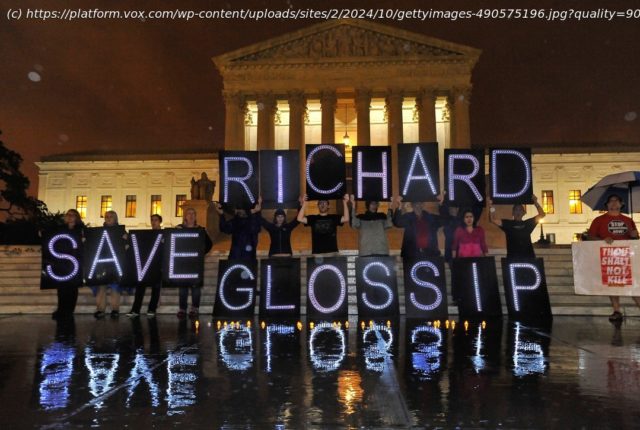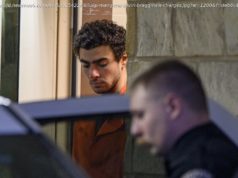It’s unclear how the Supreme Court will resolve an unusually messy death penalty case.
Glossip v. Oklahoma is currently before the Supreme Court — and it is one of the most muddled death penalty cases the Court has faced in a while. Exactly how the justices untangle it will decide whether a man lives or dies.
Richard Glossip is on death row after being convicted of an Oklahoma murder 20 years ago. Now, however, the state’s Republican attorney general says that his trial was unconstitutional and his conviction must be tossed out. The state plans to retry Glossip if his conviction is vacated, but a ruling in Glossip’s favor will get him off death row for now.SCOTUS, Explained
Get the latest developments on the US Supreme Court from senior correspondent Ian Millhiser.
Yet Attorney General Gentner Drummond has struggled to find a legal forum that will actually take the assertion that his trial was unconstitutional seriously. Oklahoma’s highest criminal court refused to accept Drummond’s arguments and kept Glossip on death row. The state parole board, meanwhile, split 2-2 on whether to grant clemency to Glossip, in part because one member of the board had to recuse himself because his wife was the lead prosecutor against Glossip.
Wednesday morning’s oral argument in Glossip only added more confusion to the mix. The two justices who typically take the most hardline positions against criminal defendants, Justices Clarence Thomas and Samuel Alito, appeared determined to toss the case out completely, without ever actually considering whether Glossip’s constitutional rights were violated. They likely have an ally in Chief Justice John Roberts, who seemed to doubt whether any possible constitutional violation in this case actually mattered enough to change the outcome of Glossip’s trial.
Justice Neil Gorsuch, who often votes with the Court’s most hardline members in death penalty cases, is recused from the case for reasons the Court did not disclose. That’s actually bad news for Glossip because he must assemble five affirmative votes to toss out his conviction in order to prevail, and the loss of even a skeptical justice is one less potential vote for him.
All three of the Court’s Democrats, meanwhile, appeared sympathetic to Glossip’s arguments, and spent much of the case batting down Alito’s proposals to dismiss the case on procedural grounds — though Justice Ketanji Brown Jackson showed some openness to forming an alliance with Thomas to send the case back down to the state courts in order to gather additional evidence.
That leaves Justices Brett Kavanaugh and Amy Coney Barrett, conservative Republicans who asked some questions that appeared sympathetic to Glossip, as the wild cards in this case. It is possible that they could provide the fourth and fifth vote to save Glossip’s life, but far from certain.
The alleged constitutional violation that is before the Court — that prosecutors withheld evidence that a key witness has a serious mental illness, and failed to correct this witness when he lied on the stand — is fairly marginal. It turns on four words in handwritten notes by prosecutor Connie Smothermon that were not turned over to Glossip’s lawyers until January 2023. The state agrees with Glossip’s legal team that these four words reveal a sufficiently serious constitutional violation to justify giving him a new trial.
But while this narrow legal issue, which is the only issue before the Supreme Court, is the kind of legal question that reasonable judges could disagree upon, Smothermon’s notes are only one piece of a wide range of evidence suggesting that Glossip’s criminal conviction is unconstitutional: Oklahoma conducted two independent investigations, both of which concluded that Glossip’s trial was fundamentally flawed.
Among other things, those investigations found that Justin Sneed — the man who actually committed the murder at issue here — was pressured by police to implicate Glossip in the crime. They also show that police and the prosecution lost or destroyed evidence that could potentially exonerate Glossip.
Start
United States
USA — Criminal Brett Kavanaugh and Amy Coney Barrett seem unsure whether to save a...






